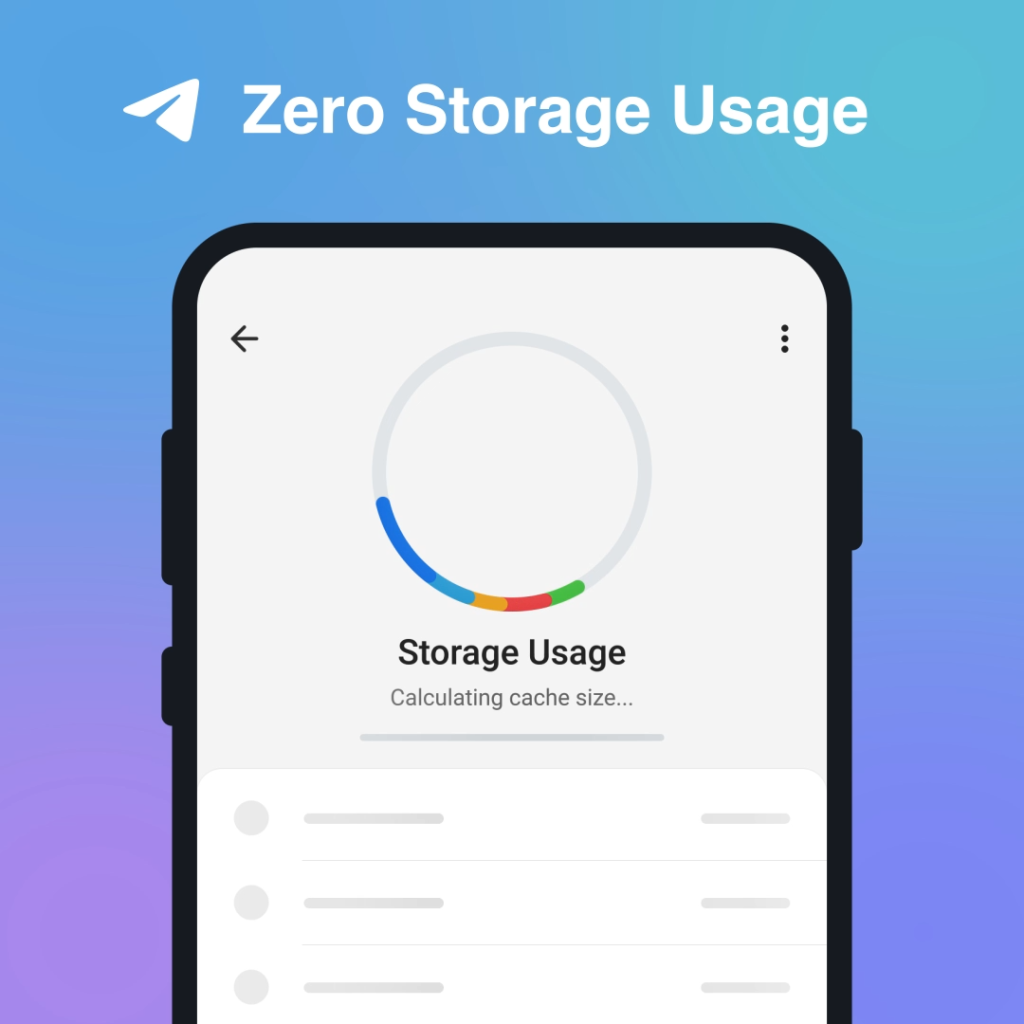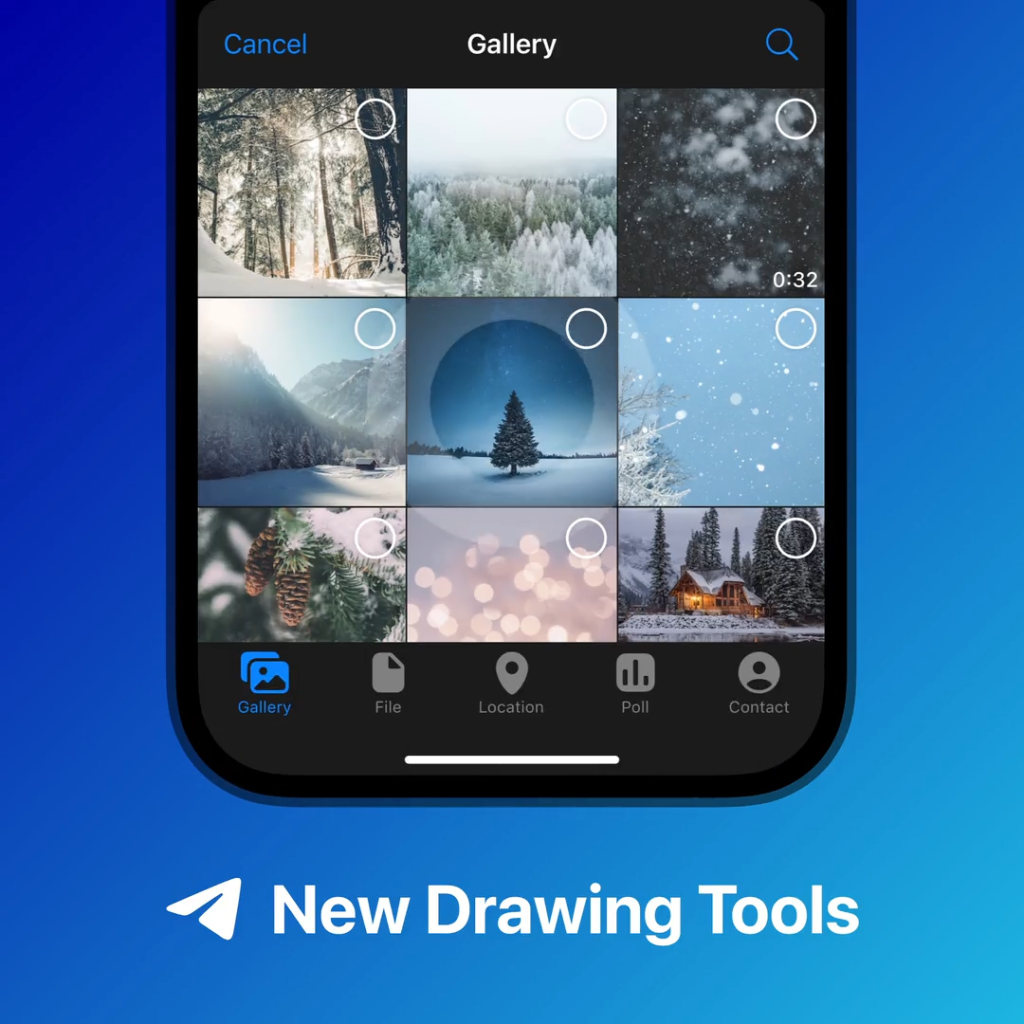
Trust Wallet was founded in 2017 by Viktor Radchenko, making it seven years old in 2024. Since its inception, it has grown rapidly, especially after being acquired by Binance in 2018.
History of Trust Wallet
Founding Date
Trust Wallet was founded by Viktor Radchenko in 2017. The idea for Trust Wallet emerged from Viktor’s desire to create a secure and user-friendly mobile wallet for the growing number of cryptocurrency enthusiasts. His background in software development and cybersecurity played a crucial role in conceptualizing and developing Trust Wallet.
- Inspiration: Viktor was inspired to develop Trust Wallet after noticing the lack of secure and easy-to-use mobile wallets in the market. His goal was to build a decentralized wallet that prioritized user security and privacy.
- Development: The development of Trust Wallet began in early 2017, with a focus on creating a robust platform that could support a wide range of cryptocurrencies and tokens.
Initial Launch
The initial launch of Trust Wallet took place in November 2017. The wallet quickly gained popularity due to its intuitive interface, strong security features, and support for multiple cryptocurrencies.
- Beta Testing: Before the official launch, Trust Wallet underwent extensive beta testing. This phase was crucial for identifying bugs, improving the user interface, and ensuring the wallet’s security.
- Official Release: Trust Wallet was officially released on November 25, 2017. The initial version of the wallet supported Ethereum and ERC-20 tokens, making it one of the first mobile wallets to offer this functionality.
- Early Adoption: The wallet quickly gained traction among the cryptocurrency community. Its open-source nature and commitment to user privacy and security helped build trust and a strong user base.
- First Features: At launch, Trust Wallet offered features such as encrypted private key storage, a user-friendly interface, and a built-in DApp browser. These features set the foundation for Trust Wallet’s future growth and development.

Key Milestones
Major Updates
Trust Wallet has undergone several significant updates since its launch, continually improving its functionality, security, and user experience. Here are some of the major updates:
- Multi-Currency Support: Initially supporting Ethereum and ERC-20 tokens, Trust Wallet expanded to support multiple cryptocurrencies, including Bitcoin, Binance Coin, and many others. This made it a versatile wallet for users with diverse portfolios.
- DApp Browser Integration: Trust Wallet introduced a built-in decentralized application (DApp) browser, allowing users to interact with DApps directly from the wallet. This feature greatly enhanced the wallet’s usability and appeal.
- Staking and Earning Features: Trust Wallet added staking functionalities, enabling users to earn rewards by staking their cryptocurrencies. This feature supports several staking coins, including Binance Coin (BNB), Cosmos (ATOM), and Tezos (XTZ).
- Enhanced Security Measures: Regular updates have included advanced security features such as biometric authentication (fingerprint and facial recognition), encrypted private key storage, and regular security audits to ensure user funds are safe.
- Cross-Chain Swap: Trust Wallet introduced a cross-chain swap feature, allowing users to exchange assets between different blockchains directly within the wallet. This feature improved liquidity and convenience for users.
- DeFi Integration: Integration with decentralized finance (DeFi) platforms provided users with access to DeFi services such as lending, borrowing, and yield farming directly from their Trust Wallet.
Strategic Partnerships
Trust Wallet has formed strategic partnerships with various organizations and projects within the cryptocurrency space to enhance its functionality and ecosystem. Here are some key partnerships:
- Binance Acquisition: In July 2018, Trust Wallet was acquired by Binance, one of the largest cryptocurrency exchanges in the world. This acquisition provided Trust Wallet with significant resources and support, accelerating its development and expanding its user base.
- Integration with Binance DEX: Following the acquisition, Trust Wallet integrated with Binance DEX (decentralized exchange), allowing users to trade directly from their wallet in a decentralized manner.
- Kyber Network: Trust Wallet partnered with Kyber Network to enable decentralized token swaps directly within the wallet. This integration provided users with a seamless and secure way to exchange tokens.
- Web3 Foundation: Collaboration with Web3 Foundation and support for the Polkadot network allowed Trust Wallet to integrate with the Polkadot ecosystem, enabling users to manage DOT and interact with Polkadot’s parachains.
- Coinbase: Trust Wallet’s integration with Coinbase’s Rosetta, an open-source framework for blockchain integration, facilitated the addition of new blockchain networks and streamlined the integration process.
- Partnerships with DeFi Platforms: Trust Wallet has partnered with various DeFi platforms, including Aave, Compound, and Uniswap, to provide users with access to DeFi services directly from the wallet.
- NFT Support: Collaborations with NFT marketplaces and platforms enabled Trust Wallet to support non-fungible tokens (NFTs), allowing users to store, manage, and trade their NFTs within the wallet.
Acquisition by Binance
Acquisition Details
In July 2018, Trust Wallet was acquired by Binance, one of the world’s largest and most prominent cryptocurrency exchanges. This strategic acquisition was aimed at enhancing Binance’s product offerings and integrating a secure, user-friendly mobile wallet into their ecosystem.
- Announcement: The acquisition was officially announced in July 2018. Binance CEO Changpeng Zhao (CZ) emphasized the importance of Trust Wallet’s security, simplicity, and reliability as key reasons for the acquisition.
- Financial Terms: While the exact financial terms of the deal were not publicly disclosed, it was reported that the acquisition included a combination of fiat money, Binance stock, and Binance Coin (BNB).
- Strategic Fit: Trust Wallet’s decentralized and non-custodial nature aligned perfectly with Binance’s vision of providing secure and user-controlled digital asset management solutions. The acquisition was seen as a move to enhance Binance’s ecosystem with a robust mobile wallet.
- Operational Autonomy: Post-acquisition, Trust Wallet retained operational autonomy. Viktor Radchenko continued to lead the Trust Wallet team, ensuring the wallet’s ongoing development and adherence to its original mission and vision.
Impact on Trust Wallet
The acquisition by Binance had a significant positive impact on Trust Wallet, enabling it to grow and innovate more rapidly.
- Increased Resources: With the backing of Binance, Trust Wallet gained access to substantial resources, including funding, technology, and human resources. This allowed the development team to accelerate the rollout of new features and improvements.
- Enhanced Security: Leveraging Binance’s extensive security infrastructure and expertise, Trust Wallet further strengthened its security protocols, ensuring even higher levels of protection for users’ digital assets.
- Expanded Cryptocurrency Support: Post-acquisition, Trust Wallet quickly expanded its support for various blockchain networks and cryptocurrencies. This included seamless integration with Binance Chain and Binance Smart Chain (BSC), allowing users to manage a broader range of digital assets within the wallet.
- Integration with Binance Services: The acquisition facilitated deeper integration with Binance’s services, such as direct access to Binance DEX (decentralized exchange) and other Binance ecosystem products. This provided users with more convenient and comprehensive tools for trading and managing their assets.
- Increased User Base: Being associated with Binance significantly boosted Trust Wallet’s visibility and credibility within the cryptocurrency community, leading to a larger and more active user base.
- Continuous Innovation: The acquisition ensured that Trust Wallet could continue to innovate and stay at the forefront of the rapidly evolving cryptocurrency landscape. This includes the addition of staking features, support for decentralized finance (DeFi) applications, and enhanced user experience.

Growth Over the Years
User Base Expansion
Since its launch, Trust Wallet has experienced significant growth in its user base, becoming one of the most popular mobile cryptocurrency wallets in the world. Several factors have contributed to this expansion:
- Global Reach: Trust Wallet has successfully attracted users from around the globe due to its support for multiple languages and its user-friendly interface that caters to both novice and experienced users.
- Community Engagement: Trust Wallet’s active engagement with its community through social media, forums, and events has helped build a loyal user base. Regular updates and transparent communication have further strengthened user trust.
- Acquisition by Binance: The acquisition by Binance in 2018 played a crucial role in accelerating Trust Wallet’s growth. Being part of the Binance ecosystem has significantly increased its visibility and credibility, attracting millions of new users.
- Mobile-First Approach: As a mobile-first wallet, Trust Wallet has capitalized on the increasing use of smartphones for managing digital assets. Its focus on providing a seamless mobile experience has been a key factor in its widespread adoption.
- Security and Privacy: Trust Wallet’s strong emphasis on security and privacy, including features like encrypted private key storage and a non-custodial approach, has resonated well with users concerned about the safety of their digital assets.
- Marketing and Partnerships: Strategic marketing efforts and partnerships with various blockchain projects and exchanges have also contributed to Trust Wallet’s user base expansion.
Supported Cryptocurrencies
Trust Wallet’s extensive support for a wide range of cryptocurrencies has been a major factor in its growth and popularity. Here are some key aspects of its cryptocurrency support:
- Multi-Currency Support: Trust Wallet supports a vast array of cryptocurrencies, including major coins like Bitcoin (BTC), Ethereum (ETH), and Binance Coin (BNB), as well as numerous ERC-20, BEP-2, and BEP-20 tokens.
- Integration with Multiple Blockchains: Trust Wallet integrates with various blockchain networks, including Ethereum, Binance Chain, Binance Smart Chain, TRON, and others. This broad support allows users to manage a diverse portfolio of digital assets within a single wallet.
- Token Management: Users can easily add custom tokens to their wallet by entering the token contract details. This flexibility ensures that users can manage even lesser-known tokens that may not be natively supported by the wallet.
- Decentralized Exchange Integration: The integration with decentralized exchanges (DEXs) like Uniswap, PancakeSwap, and 1inch allows users to trade a wide range of tokens directly within the wallet. This feature has expanded the utility of Trust Wallet and attracted users looking for seamless trading experiences.
- DeFi and Staking Support: Trust Wallet’s support for decentralized finance (DeFi) applications and staking has further broadened its appeal. Users can participate in DeFi activities such as lending, borrowing, and yield farming, and earn rewards by staking their cryptocurrencies.
- NFT Support: Trust Wallet also supports non-fungible tokens (NFTs), allowing users to store, manage, and trade NFTs within the wallet. This feature caters to the growing interest in digital collectibles and blockchain-based art.

Technological Developments
New Features
Trust Wallet has consistently introduced new features to enhance its functionality, usability, and overall user experience. Here are some of the notable features that have been added over the years:
- DApp Browser: Trust Wallet integrated a decentralized application (DApp) browser that allows users to interact with DApps directly from the wallet. This feature has opened up a wide range of possibilities, from decentralized finance (DeFi) platforms to blockchain games and marketplaces.
- Staking and Earning: The introduction of staking features enables users to earn rewards by staking various cryptocurrencies directly from their wallet. Trust Wallet supports staking for several coins, including Binance Coin (BNB), Cosmos (ATOM), and Tezos (XTZ).
- Multi-Currency Support: Trust Wallet has expanded its support to include a vast array of cryptocurrencies and tokens. This includes major coins like Bitcoin (BTC), Ethereum (ETH), and numerous ERC-20, BEP-2, and BEP-20 tokens.
- Cross-Chain Swap: The wallet introduced a cross-chain swap feature, allowing users to exchange assets between different blockchains directly within the app. This enhances liquidity and provides users with greater flexibility in managing their assets.
- NFT Support: Trust Wallet supports non-fungible tokens (NFTs), enabling users to store, manage, and trade digital collectibles and blockchain-based art. This feature caters to the growing interest in NFTs.
- WalletConnect Integration: Trust Wallet integrated WalletConnect, a protocol that allows users to connect their wallet to DApps on other devices securely. This feature enhances usability and provides a seamless experience for interacting with decentralized applications.
- Buy Crypto with Fiat: The ability to purchase cryptocurrencies directly within the wallet using fiat currencies was introduced, making it easier for users to acquire digital assets. This is facilitated through partnerships with payment processors like Simplex and MoonPay.
Security Enhancements
Security is a paramount concern for Trust Wallet, and numerous enhancements have been made to ensure the safety and integrity of users’ assets. Here are some key security developments:
- Biometric Authentication: Trust Wallet supports biometric authentication methods, such as fingerprint and facial recognition, providing an additional layer of security for accessing the wallet and authorizing transactions.
- Encrypted Private Keys: Private keys are stored locally on the user’s device and are encrypted to prevent unauthorized access. This ensures that only the user has access to their funds and private keys.
- Open Source: Trust Wallet’s code is open-source, allowing the global developer community to review and audit the code. This transparency helps identify and fix potential vulnerabilities, ensuring the wallet’s security and reliability.
- Regular Security Audits: Trust Wallet undergoes regular security audits conducted by third-party security firms. These audits help identify and address potential security flaws, maintaining the highest standards of security.
- Secure Backup and Recovery: Users are provided with a secure 12-word recovery phrase when creating a new wallet. This phrase is essential for recovering access to the wallet in case the device is lost or damaged. Users are encouraged to store this phrase securely offline.
- Phishing Protection: Trust Wallet has implemented measures to protect users from phishing attacks, including warnings about suspicious links and educating users on recognizing and avoiding phishing attempts.
- Two-Factor Authentication (2FA): While the wallet itself does not require 2FA, Trust Wallet encourages users to enable 2FA on their email and other accounts associated with their wallet for added security.
- Device-Level Security: Trust Wallet leverages the device’s security features, such as secure enclaves and hardware security modules, to enhance the protection of sensitive information stored on the device.

Community Engagement
User Feedback
User feedback plays a crucial role in the continuous improvement and development of Trust Wallet. The team behind Trust Wallet actively seeks and incorporates feedback from its user base to ensure the wallet meets the evolving needs of the cryptocurrency community.
- Feedback Channels: Trust Wallet utilizes multiple channels to gather user feedback, including social media platforms like Twitter, Telegram, and Reddit. These channels allow users to share their experiences, suggestions, and concerns directly with the Trust Wallet team.
- User Surveys: Periodically, Trust Wallet conducts user surveys to collect structured feedback on various aspects of the wallet, such as usability, features, and security. These surveys help identify areas for improvement and prioritize new features based on user demand.
- App Reviews: Trust Wallet monitors app store reviews and ratings on platforms like the Google Play Store and Apple App Store. User reviews provide valuable insights into the wallet’s performance and user satisfaction.
- Community Forums: The Trust Wallet community forum is a dedicated space where users can discuss issues, share tips, and provide feedback. The forum is moderated by Trust Wallet staff, ensuring that feedback is acknowledged and addressed promptly.
- Beta Testing: Trust Wallet involves its community in beta testing new features and updates. Beta testers provide critical feedback on the functionality, usability, and stability of new releases, helping to refine and improve the wallet before public rollout.
Community Initiatives
Trust Wallet is committed to engaging with its community through various initiatives that foster growth, education, and collaboration. These initiatives help build a strong and vibrant community around the wallet.
- Educational Content: Trust Wallet produces a wide range of educational content, including tutorials, blog posts, and videos. This content is designed to help users understand how to use the wallet, manage their assets, and stay informed about the latest developments in the cryptocurrency space.
- AMA Sessions: Trust Wallet regularly hosts Ask Me Anything (AMA) sessions with the development team. These sessions provide an opportunity for users to ask questions, learn more about the wallet’s features and future plans, and engage directly with the team.
- Social Media Campaigns: Trust Wallet runs social media campaigns to promote engagement and awareness. These campaigns often include contests, giveaways, and informational posts that encourage users to interact with Trust Wallet’s social media accounts and share their experiences.
- Partnerships with Projects: Trust Wallet collaborates with various blockchain projects and organizations to promote mutual growth and innovation. These partnerships often involve joint marketing efforts, integration of new features, and community-driven initiatives.
- Community Grants and Support: Trust Wallet supports community-driven projects and initiatives through grants and funding. By empowering developers and community members, Trust Wallet fosters innovation and contributes to the broader cryptocurrency ecosystem.
- Events and Meetups: Trust Wallet participates in and organizes events and meetups to connect with its community in person. These events provide a platform for users to network, share knowledge, and discuss the latest trends and developments in the cryptocurrency world.
- Transparency and Communication: Trust Wallet maintains transparency in its development process and decision-making. Regular updates, blog posts, and announcements keep the community informed about new features, security enhancements, and strategic directions.

Future Prospects
Upcoming Features
Trust Wallet is continually evolving to meet the needs of its growing user base. Here are some of the upcoming features that the Trust Wallet team is planning to implement:
- Enhanced Staking Options: Trust Wallet aims to expand its staking capabilities by adding support for more cryptocurrencies. This will enable users to earn rewards from a wider range of assets, providing more opportunities for passive income.
- Layer 2 Integration: To improve transaction speed and reduce fees, Trust Wallet plans to integrate Layer 2 scaling solutions, such as Optimistic Rollups and zk-Rollups. These solutions will enhance the user experience, especially for Ethereum transactions.
- Cross-Chain Compatibility: Expanding cross-chain functionality will allow users to swap assets between different blockchain networks seamlessly. This feature will improve liquidity and provide greater flexibility in managing diverse portfolios.
- Improved DApp Browser: Enhancements to the built-in DApp browser will include better user interface design, faster loading times, and support for more decentralized applications. This will make it easier for users to interact with DeFi platforms, games, and other blockchain-based services.
- Advanced Security Features: Trust Wallet will continue to enhance its security measures by integrating advanced features such as multi-signature support, hardware wallet compatibility, and more robust anti-phishing protections.
- Customizable Alerts and Notifications: Users will be able to set up personalized alerts and notifications for price changes, transaction confirmations, and other important events. This feature will help users stay informed and make timely decisions.
- Integration with More DeFi Platforms: Trust Wallet plans to deepen its integration with leading DeFi platforms, offering users seamless access to lending, borrowing, yield farming, and other DeFi services directly from the wallet.
- Fiat On-Ramp Expansion: Expanding fiat on-ramp services will make it easier for users to buy cryptocurrencies using traditional currencies. This will involve partnerships with additional payment providers and support for more fiat currencies.
Long-Term Goals
Trust Wallet has a clear vision for its long-term development, focusing on user empowerment, security, and the adoption of decentralized technologies. Here are some of the key long-term goals:
- Universal Wallet Solution: Trust Wallet aims to become a universal wallet solution that supports every major blockchain and cryptocurrency. This includes continuously expanding the list of supported assets and ensuring compatibility with emerging blockchain technologies.
- Decentralized Governance: Implementing decentralized governance mechanisms will allow the community to participate in decision-making processes. This will ensure that the development and direction of Trust Wallet align with the interests and needs of its users.
- Enhanced User Privacy: Trust Wallet is committed to enhancing user privacy by implementing advanced privacy features and supporting privacy-focused cryptocurrencies. This will help protect user identities and transaction details from third-party scrutiny.
- Global Adoption: Promoting global adoption of cryptocurrency and blockchain technology is a core goal for Trust Wallet. This involves making the wallet accessible to users in all regions, providing multilingual support, and ensuring compliance with local regulations.
- Educational Initiatives: Trust Wallet plans to invest in educational initiatives to help users understand the benefits and risks of cryptocurrencies and blockchain technology. This includes producing educational content, hosting webinars, and collaborating with educational institutions.
- Sustainability and Scalability: Developing sustainable and scalable solutions is crucial for Trust Wallet’s long-term success. This includes optimizing the wallet’s performance, reducing its environmental impact, and ensuring it can handle increasing user demand.
- Innovation and Research: Trust Wallet is dedicated to staying at the forefront of blockchain innovation. This involves investing in research and development to explore new technologies, improve existing features, and introduce groundbreaking functionalities.
- Community Building: Building and nurturing a strong, engaged community is essential for Trust Wallet’s future. This includes supporting community-driven projects, fostering collaboration, and maintaining transparent communication with users.
- Security Leadership: Trust Wallet aims to be a leader in cryptocurrency wallet security. This involves continuous improvement of security protocols, regular audits, and implementing cutting-edge security technologies to protect users’ assets.